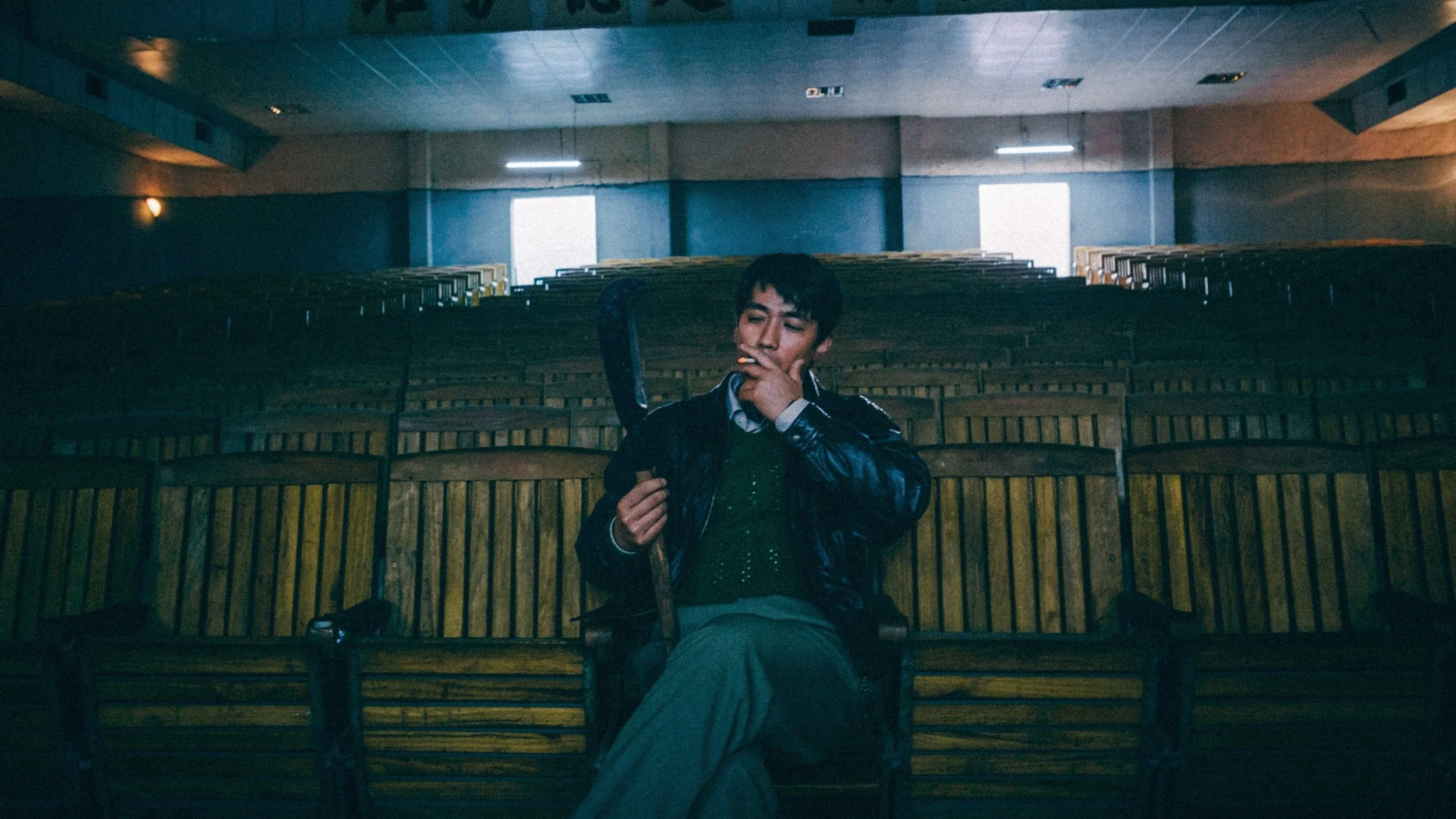Only the River Flows
Wei Shujun’s Chinese film noir is a promising tale of murder that ultimately loses its way.
Image courtesy of Picturehouse Entertainment
This is the third feature by the Chinese director Wei Shujun and, although it is the first to be distributed in the UK, all three of them have won awards. Only the River Flows is a free adaptation of a novella by Yu Hua and is set in 1995 and it could be described as a detective story. The central figure is a policeman, Captain Ma (Zhu Yilong), and we encounter him in Peishui City following a striking prologue in which a young boy is seen playing a game of cops and robbers in an uninhabited building. This opening to the film leads up to a stunning moment when a door is pushed open and it immediately establishes the director’s skill. Next, we see Ma at a time when the police chief (Hou Tianlai) is taking over a now disused cinema as their base with Ma using the former projection room as his office. The main storyline is then set up as we move to a village in the region where an elderly widow (Cao Yang) is attacked and it is Ma who will now lead the investigation into her death.
Before seeing the film, I had read reviews which both categorised it as a film noir and indicated that the plotting became rather bewildering - and all the more so because what we see increasingly reflects a mental breakdown experienced by Ma. However, the first hour or so of Only the River Flows struck me as a relatively straightforward tale of detection in which bodies mount up while items found at the scene of the first murder point to various suspects who may or may not be guilty. Rather than linking it with the film noir era of the 1940s, I found this film pleasingly distinctive in its atmosphere and tone as illustrated not only by the frequent downpours but by the director’s surprising realisation that murder can play out effectively when a film accompanies it with Beethoven's most famous piano sonata, the ‘Moonlight’ (and, what is more, opts for a recording of it by the great Emil Gilels!).
It is the case that this part of the film includes some unusual features including a quote at the start taken from Albert Camus that you would hardly expect to find in a whodunnit. The very notion of the police station being established in a former cinema can be interpreted as a hint of artifice, a reminder that stories told (like this one) are not to be mistaken for reality. But such details don't prevent this ably acted tale from being a good genre piece as events gradually unfold. If one is looking for additional elements that carry a certain weight, they are present too. In particular it is apparent how readily society will pick on those they see as undesirables when it comes to the suspects in the case: there is a gay hairdresser (Wang Jianyu) who falls into this category and a person who had in effect been adopted by the first victim and who is regularly described as ‘the madman’ (Kang Chunlei). It also becomes apparent that the Criminal Investigation Department is anxious to preserve its reputation - its honour indeed - claiming success even when real evidence of guilt does not exist.
The last third of Only the River Flows is a different matter, however. Here it becomes all too clear why many viewers find the film and it aims confusing. There is a sub-plot centred on the fact that Ma's wife (Chloe Maayan) is expecting their child and that the couple are warned that if the birth goes ahead the child is at risk of being born with a defect. That the wife still wants the child while Ma favours an abortion leads to a violent dispute between them, but the matter is oddly downplayed after that. Despite this, it may well be that the issue is meant to contribute to Ma’s mental problems along with his obsession with the killings and the way in which the evidence continually fails to add up. A further thread is also incorporated with Ma claiming to have won awards for his work in the past although there is no documentation to prove it and a friend suggests that Ma’s memory is at fault. This too may be intended as a sign of encroaching mental breakdown, but none of it is built up in a way that convincingly clarifies why Ma is affected to this extent. On the other hand, we do see a dream of his in which he is haunted by the killings, but it is shot in a way that suggests a filmmaker’s concept rather than a convincing portrayal of a real dream.
By the close we are left uncertain as to what is real and what is only in Ma’s mind. And, if that makes a disappointing ending to a tale initially established as a good detective story, it also fails as a persuasive study of a mental breakdown – and that's a shame because Zhu Yilong is an effective central presence and for much of its running length the film comes across very well indeed.
Original title: He bian de co wu.
MANSEL STIMPSON
Cast: Zhu Yilong, Chloe Maayan, Hou Tianlai, Tong Linkai, Kang Chunlei, Wang Jianyu, Liu Baisha, Moxi Zishi, Zeng Qi, Meng Xiangliang, Cao Yang, Zhou Qingyun.
Dir Wei Shujun, Pro Tang Xiaohou, Huang Xufeng, Li Chan, Shen Yang and Wang Caitao, Screenplay Kang Chunlei and Wei Shujun, based on the novella Mistakes by the River by Yu Hua, Ph Chengma, Art Dir Zhang Menglun, Ed Matthieu Laclau, Costumes Chao Su.
Hangzhou Dangdang Film/Emei Film Group/KXKH Film/China Film Co. Ltd/Lian Ray Pictures/Global Pictures Co. Ltd-Picturehouse Entertainment.
102 mins. China. 2023. UK Rel: 16 August 2024. Cert. 15.


